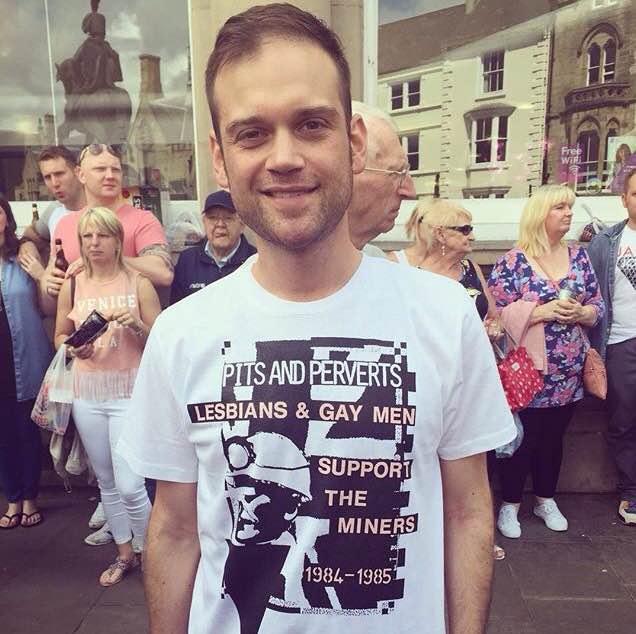This gay man decided to school a homophobe after being harassed in the street – WATCH
By Josh Lee

Street harassment is something most LGBT people face at least once in their lives. From judgemental stares right the way through to vicious assaults, even in 2016 public spaces aren’t 100% safe for those of us who look or act ‘differently’.
Hanif Leylabi, a 29-year-old charity worker who lives in Canning Town, London, was walking home alone after a meal with friends at 00:45 in the early hours of this morning (September 8), when he was accosted by a seemingly inebriated man on Barking Road, who began hurling homophobic insults at him.
While some might keep their heads down and keep walking, Hanif decided to challenge the man who had harassed him.
In a video that begins in the middle of the exchange and was later posted to Twitter, he can be heard telling his harasser: “I believe it’s a free country, and people can do what they want”.
To which the man responds: “So do you understand this then; some people believe in terrorism, and they believe they can do that all they want, every day.”
Unperturbed, Hanif hits back: “Yeah but that kills people. I’m not killing anyone. I’m just doing stuff with someone else who wants to do it. It’s no skin off your nose is it?”
As the harasser grunts sheepishly, Hanif sticks the boot in.
“I’m not getting in your life, I’m not walking past you shouting abuse at you – but you did at me, because you’re giving yourself the right to.”
Startled, the homophobe falls back on the defence of the well-and-truly defeated: Denying he ever said anything in the first place.
“You said batty boy when I walked past,” Hanif reminds him.
“I might have had a thought”, says the man as he begins to walk off – to which Hanif has just one thing to say:
“I doubt it”.
https://twitter.com/hanifleylabi/status/773672423828942848
Speaking to Attitude following the incident, Hanif recalls: “He said ‘batty boy’. I challenged him and when asked if I take it up the arse, I responded, “yes, got a problem with that?
“He then said it should be illegal. He also asked me to explain why all the major religions say it’s wrong.”
“He was drunk and had a can of lager in his hand. He initially squared up to me, but when I squared up in return he backed off. His tone was initially threatening but did change when challenged.
He continues: “I felt angry that this still happens and angry that there are LGBT people out there who experience this on a much greater scale. We might have equal marriage but we still have homophobic murders and I don’t think we should lose sight of that.”
Hanif says he recorded the incident “to prove that this stuff still happens” in 2016.
“I wanted people to see that we’re not exaggerating,” he tells us. “There are still people out there who have a problem with the fact that we exist.”
https://twitter.com/hanifleylabi/status/773673995157827584
Not everyone would feel confident challenging public bigotry in the way Hanif did. Often, it’s not safe to do so, and Hanif admits that “sometimes it could be putting you in a dangerous situation.”
But for Hanif, believing that homophobic views are in the minority encouraged him to speak up.
“I did initially [feel threatened], but I also feel that the tide is turning in favour of LGBT rights and that people like him are in a minority now,” he says.
“I don’t think was the case when I was young growing up in Newcastle. That gave me the confidence to say actually what a minute I’m not just going to walk away”.
“I just thought, ‘you know what I live here, I pay my taxes, I live literally yards away why should he be allowed to get away with it unchallenged?'”
In 2015, figures revealed a “shocking” 22% rise in homophobic hate crimes – but that only accounts for crimes reported, with experts estimating that only 25% of crimes are filed with the police.
Despite previous “negative experiences” with the police, Hanif says he’s reported the incident as a hate crime.
“We fought hard to make policing of hate crimes better and we should hold the police to the higher standards they’ve signed up to. I’ve had really negative experiences with them in the past but recently it’s been more positive.
“This is why we still need pride,” Hanif adds. “This is why the act of parading through the streets is still important because some people still have a problem with us just walking home.”
